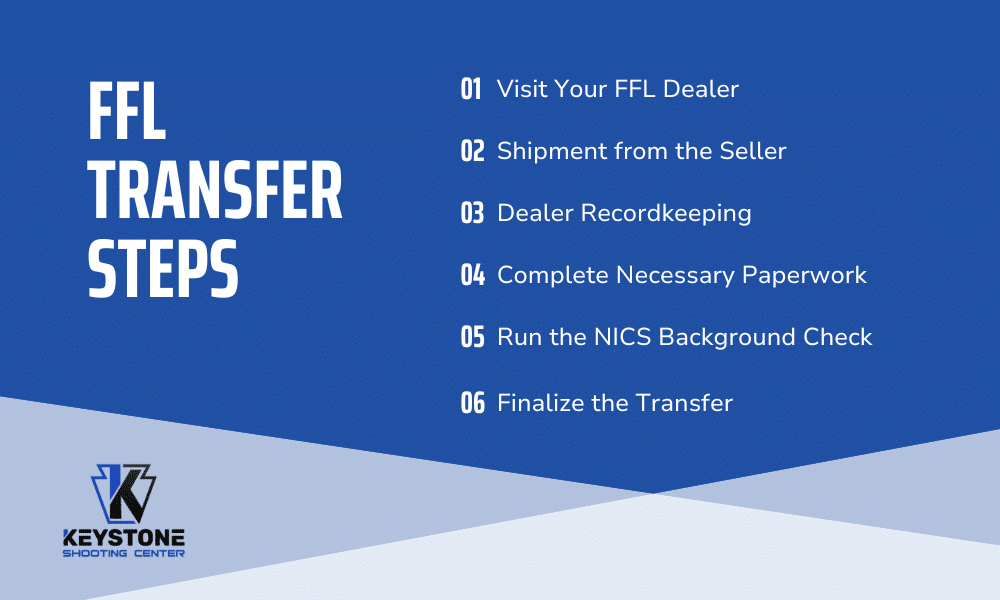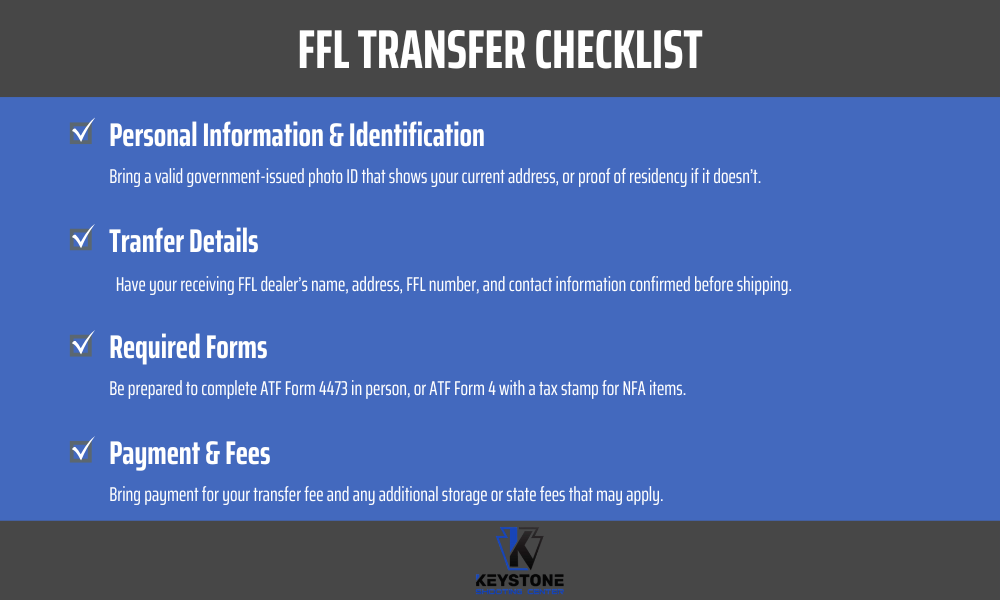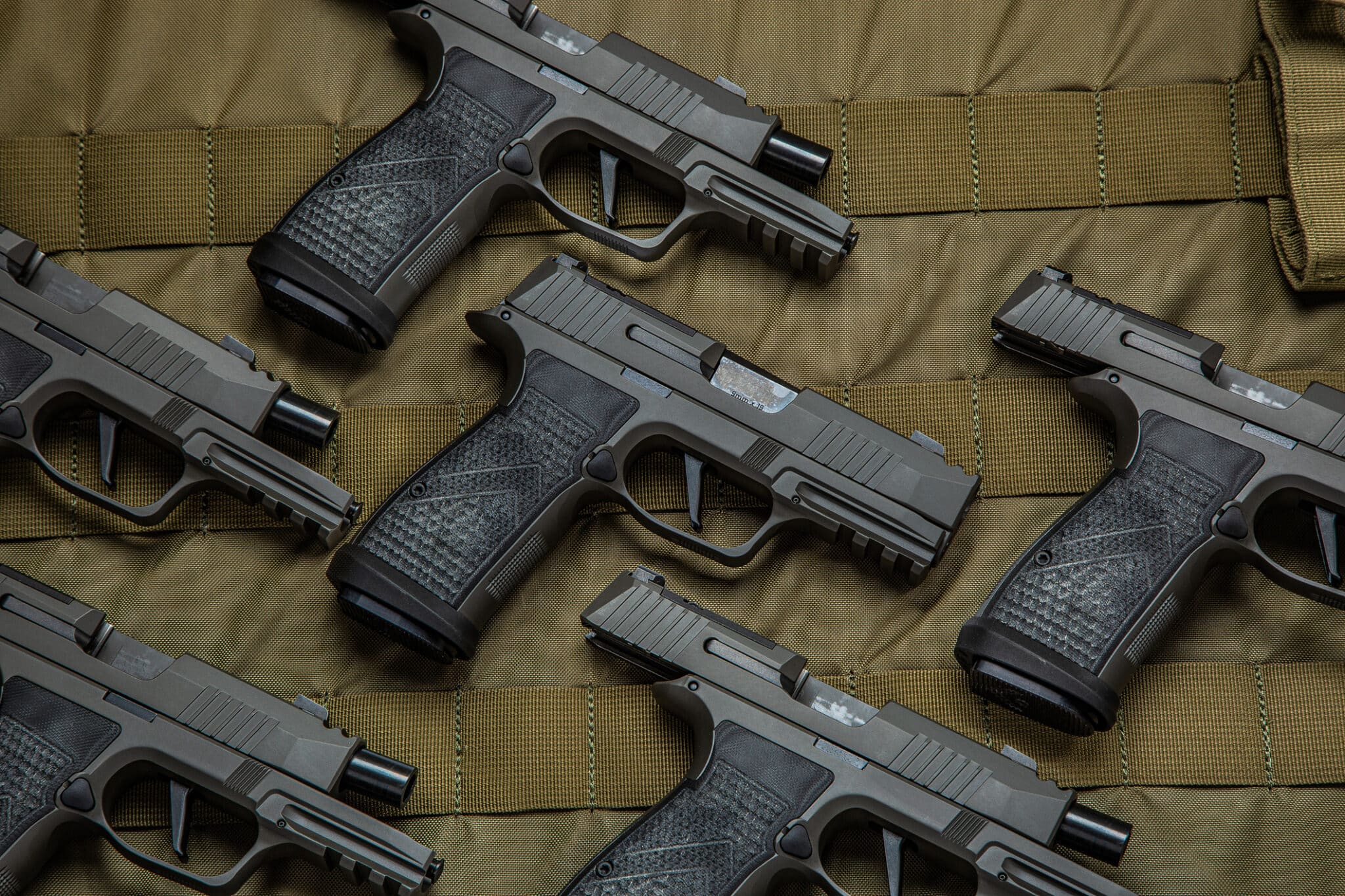An FFL transfer is the legal process that allows a firearm to move from one person or seller to another through a licensed Federal Firearms License (FFL) dealer. This process exists to make sure every firearm transfer follows federal law and that the buyer completes a background check before taking possession.
In simple terms, the FFL transfer acts as a safeguard. Whether you’re buying a gun from an online retailer, a seller in another state, or a private party, the firearm must be shipped to an FFL dealer who will handle the paperwork, verify your eligibility, and release the gun once everything is approved. This ensures that every firearm transaction is tracked, recorded, and compliant, protecting both the buyer and the seller.
Why Firearm Transfers Are Required
Firearm transfers exist to keep gun ownership lawful, traceable, and safe. Under federal law, specifically the Gun Control Act of 1968, most firearm purchases must go through a licensed Federal Firearms Licensee (FFL). This requirement helps ensure that firearms only reach individuals legally permitted to own them. Every FFL holder follows strict federal regulations, verifying a buyer’s identity and eligibility before completing the transfer.
Each federal firearms licensee is required to keep detailed records of every firearm received and transferred. These entries are logged in what’s called a bound book, a permanent record maintained on the dealer’s licensed premises. Before a gun is released to a buyer, the dealer runs a NICS background check through the FBI or State Point-of-Contact, depending on the site, to confirm that the person is legally allowed to own a firearm.
Several situations require this process:
- When buying a firearm online or across state lines, it must be shipped to a local FFL for transfer.
- If you receive a gun from a private party or seller, the transfer still needs to go through an FFL in many cases.
- NFA items and military-style assault weapons have additional steps, required approval, and tax stamps.
While these rules apply nationwide, state laws across the United States may add further restrictions, waiting periods, or background check requirements. Checking both federal and state regulations ensures your firearm transfer stays fully compliant.

The Step-by-Step FFL Transfer Process
Completing an FFL transfer might sound complicated at first, but the process is straightforward once you understand each step. Here’s how it works from start to finish:
- Visit your Local FFL Dealer – The buyer selects a nearby FFL dealer to receive the firearm. This is typically a gun store, range, or licensed business authorized to handle firearm transfers. If you’re located in the Pittsburgh area, visit Keystone Shooting Center.
- Shipment from the Seller – The seller ships the firearm directly to that dealer’s licensed premises. Federal law does not allow direct shipping to private individuals for most transactions. However, state laws have stricter regulations so defer to the state laws.
- Dealer Recordkeeping – When the firearm arrives, the dealer logs it into their bound book, creating an official record of its entry. The dealer then contacts the buyer to arrange pickup.
- Complete necessary paperwork – Before the firearm can be transferred, the buyer fills out the ATF Form 4473, also known as the transfer form. This document records identifying information and includes questions to determine eligibility under federal law.
- Run the NICS Background Check – The FFL dealer submits the buyer’s information for a NICS background check. This step verifies the buyer’s legal ability to possess a firearm.
- Finalize the Transfer – Once the background check is approved, the buyer pays any transfer fee or storage fee and takes possession of the firearm.
A few simple steps can make this process even smoother:
- Bring a valid government-issued ID that matches your current address.
- Confirm the dealer’s business hours and contact information before shipping.
- Double-check that the firearm’s details on the transfer form are correct.
It’s important to remember that the background check requirement applies to nearly every transaction, even if a gun is gifted, traded, or sold privately, so long as an FFL dealer is involved in the transfer. This process protects both the buyer and the seller while maintaining full compliance with federal and state laws.

Understanding Fees, Forms, and Federal Regulations
Like any professional service, FFL transfers come with fees that cover the dealer’s time, recordkeeping, and compliance responsibilities. FFL transfer fees typically range based on the dealer’s location, business type, and the complexity of the transfer. These costs account for completing the ATF Form 4473, conducting the NICS background check, maintaining the firearm in secure storage, and updating the bound book records. Some dealers may also charge a storage fee if the firearm is held for an extended period before pickup.
For certain firearms, such as short-barreled rifles, suppressors, or other NFA items, the process involves additional paperwork and longer wait times. These transfers require filing an ATF Form 4, which differs from a standard firearm transfer form. The Form 4 includes a tax stamp and federal approval process managed through the Bureau of Alcohol, Tobacco, Firearms, and Explosives (ATF).
Behind the scenes, federal agencies and law enforcement maintain oversight of the system. The ATF keeps a centralized list of every active federal firearm licensee across the United States, ensuring accountability and traceability for all firearm transactions.
To avoid delays or complications, it’s smart to:
- Verify the dealer’s FFL number before shipping a firearm to confirm it’s valid and up to date.
- Check your state laws; some states require extra forms, waiting periods, or permits beyond federal requirements.
- Military members or individuals moving across state lines should plan ahead, as a transfer may be required when bringing firearms into a new state.
By understanding how fees, forms, and regulations fit together, buyers can navigate the transfer process confidently while staying compliant with both federal and state law.

Why Work with a Trusted Local FFL Dealer
Choosing the right FFL dealer can make a big difference in how smooth and secure your firearm transfer feels. Experience matters, especially when it comes to understanding federal regulations, handling sensitive paperwork, and ensuring every step stays compliant. Working with a knowledgeable, veteran-owned dealer gives you confidence that your firearm is being handled properly from the moment it arrives until you take it home.
At Keystone Shooting Center, our team takes pride in making the transfer process clear, quick, and professional. We offer:
- A fast, transparent transfer process with fair and upfront FFL transfer fees
- Step-by-step guidance through federal regulations, ATF forms, and NFA items
- Expert support for firearm sales, purchases, and secure storage
- Help with additional information or documentation to simplify your experience
Whether you’re completing your first firearm transaction or you’re a longtime collector, our staff is here to make the process safe, compliant, and stress-free.
If you’re planning a purchase or need help navigating your next transfer, contact Keystone Shooting Center. Our experienced FFL holders are ready to answer your questions and help you complete your transfer with confidence.


 Search
Search 